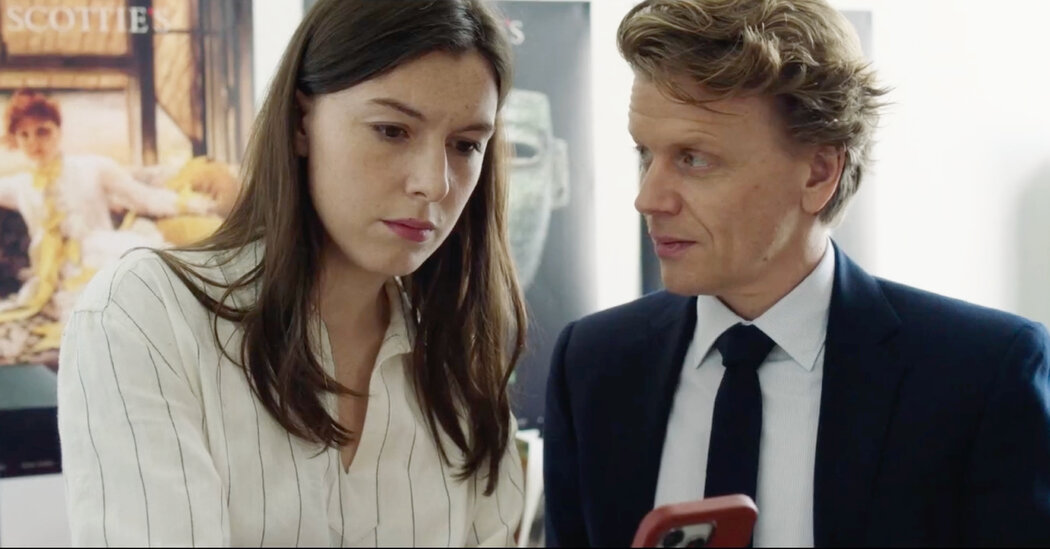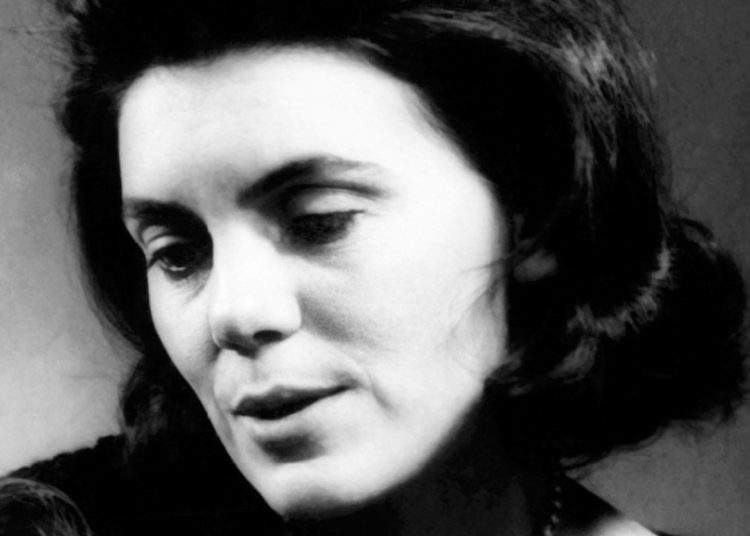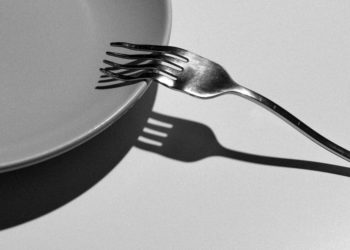The stakes and the haul in the French movie “Auction” aren’t as spectacularly high as those in the recent Louvre jewelry heist. Even so, there is much on the line in this smart, digressive, agreeably sardonic drama set in the art world, which tracks what happens after a decades-lost painting by Egon Schiele resurfaces. Layered with grime and a terrible history, the canvas instigates predictable excitement and scrambling from interested parties. The painting may likely fetch millions on the market, so it’s no surprise that everyone — from the humble to the most exclusive of cultural mercenaries — wants a piece.
High stakes can bring out the dramatically best and worst in characters, but André (a very good Alex Lutz) proves seductively ambiguous. A successful, crisply no-nonsense auctioneer at a high-flying company in Paris, he looks the part of the ideal art emissary, from his carefully tousled blond hair to his tailored suits, expensive watches and silver Aston Martin. He’s well regarded, if not altogether well liked, including by his co-workers. Early on, in a characteristically tart, tight scene, one of the company’s executives presents him a venomous gift: a copy of a late-18th-century satire about courtiers titled “Essay on the Art of Crawling.” “Too bad,” André says of the gift with an unwavering smile, “I have it already.”
The exchange is as potent as it is inconspicuous — no one else in the offices gives the men a second look — and it illustrates how smoothly André negotiates with the powerful. It also conveys the writer-director Pascal Bonitzer’s wider thematic interests and his facility for narrative compression. In just a few shots and a matter of seconds, two men chat, their conversation by turns obvious and opaque, while discreetly brandishing metaphoric daggers at each other’s throats. By the time they part ways, each has announced his position but only one has walked away seemingly unfazed. (Bonitzer, a film critic turned writer-director, has written scripts for the likes of Jacques Rivette, André Téchiné and Raoul Peck.)
Bonitzer’s inspiration for “Auction” was the 2005 discovery in France of Schiele’s long-missing 1914 tableau “Wilted Sunflowers (Autumn Sun II),” which may have been, in turn, inspired by van Gogh. Using this striking, cheerless painting of sunflowers as its anchor, the story revisits the history of the canvas after its Jewish owner fled Europe during World War II and his modern masterworks fell into Nazi hands. Following a tip, André and a colleague, Bertina (a reliably first-rate Léa Drucker), travel to a modest house near the German border that’s in the shadow of a factory with what look like smokestacks. They are needlessly blunt totems in a movie that, at its most successful, embraces obliqueness.
To the shock of its current owner, Martin (Arcadi Radeff), a factory worker, André and Bertina sketch in how an Expressionist masterwork collected by an Austrian Jew was transformed into Nazi-designated “degenerate art” only to end up in an ordinary French house. Like its Jewish owner once was, the painting is swept up in questions of identity, provenance, authenticity and putative value. These same questions haunt all the characters in one way or another. It’s unsurprising, for one, that André speaks more about the painting’s market value than its aesthetic qualities. That doesn’t make him a villain; it’s the job. It is also a given in a world in which everything — art, personal history and even love — is fungible.
The post ‘Auction’ Review: The Art World’s Gilded Hustle appeared first on New York Times.




